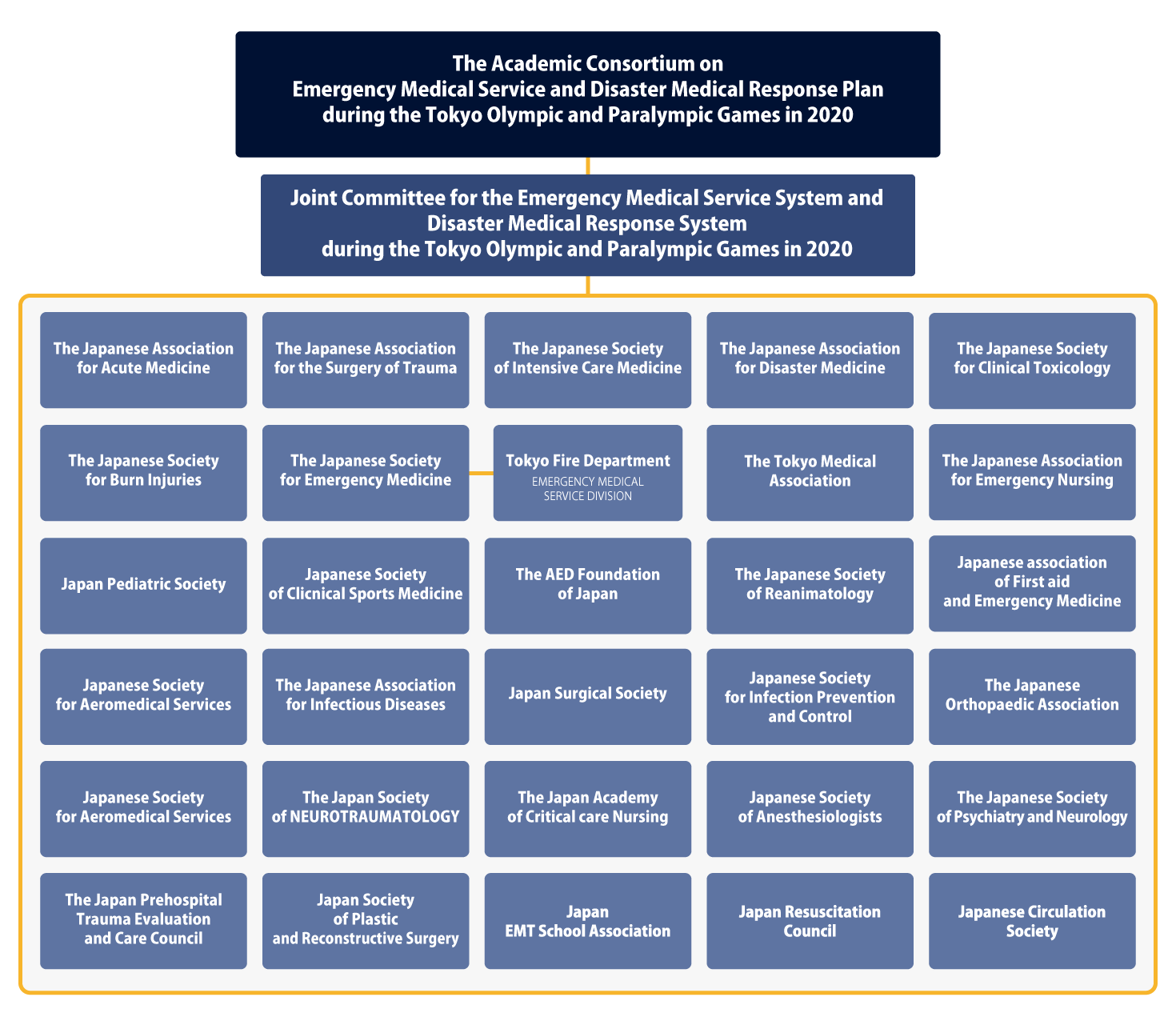Greeting from representatives of each members.
The Japanese Association for Acute Medicine
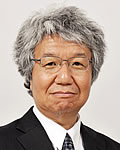
Chairperson, Board of DirectorsTetsuya Sakamoto, M.D., Ph.D.
In the Tokyo 2020 Olympic and the Paralympic Games, a large number of persons concerned and spectators will gather from all over the world, it is necessary to develop and construct the special emergency medical system to prepare for mass casualties with the threat of terrorism, as soon as possible.
Under such circumstances, “The academic consortium on emergency medical service and disaster medical response plan during the Tokyo Olympic and Paralympic games in 2020” has been organized by 8 academic societies, which relate to the emergency medical care, (Japanese Association for Acute Medicine, Japanese Society for Emergency Medicine, Japanese Society of Intensive Care Medicine, Japanese Association for the Surgery of Trauma, Japanese Association for Disaster Medicine, Japanese Society for Clinical Toxicology, Japanese Society for Burn Injury, Japanese Association for Emergency Nursing), and Tokyo Medical Association.
This consortium collects the past information of the emergency medical system such as the Ise-Shima Summit, Rio de Janeiro and London Olympic games, and aims for presenting the model emergency medical system plan at the Tokyo 2020 Olympic and the Paralympic Games. Due to the pandemic of COVID-19 started since the beginning of 2020, the Tokyo 2020 Olympic and the Paralympic Games has been postponed to year 2021. The role that the consortium should play is becoming more and more important, because strict infectious disease control is required for the event.
From here on, I would like to invite the cooperation of many organizations as well as everyone concerned, and to proceed with work.
The Japanese Association for Acute Medicine WEB Site
The Japanese Association for the Surgery of Trauma
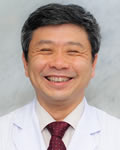
Chair of the BoardAkio Kimura, M.D., Ph.D.
The Japanese Association for the Surgery of Trauma aims to help Japanese citizens maintain good health and save their lives while contributing to the progress and development of traumatology and the related fields by collecting, providing, and exchanging information on traumatology. Currently, about 2,300 physicians belong to be members, and they are engaged in academic meetings and various committees. We also operate the board certification system for trauma specialists aimed for training of the leaders in trauma practice.
There are serious concerns about the occurrence of terrorism according with the Tokyo 2020 Olympic and Paralympic Games. Because there are little experiences about the management of gunshot wounds and blast injuries in Japan, we have established a special committee composed of doctors who are familiar with those injuries, to make both pre-hospital and in-hospital clinical practice guidelines for gunshot wounded and blast injured patients, and will publish them in sequence.
The Japanese Association for the Surgery of Trauma WEB Site
The Japanese Society of Intensive Care Medicine
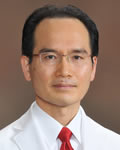
Chair of the Executive BoardMasaji Nishimura, M.D., Ph.D.
Japanese Society of Intensive Care Medicine is a professional organization composed of multi-professionals involved in intensive care medicine. Although the intensive care unit is indispensable in current medical care, the number of ICU beds are limited. When many casualties occur, we cannot deal with nearest facilities alone. In this consortium, I would like to contribute by establishing an intimate contact network, especially centered on facilities in the Kanto region, and building an organization that can efficiently accept severe patients. Even if, in general, it is said to be an intensive care unit, each unit has their own characteristics, and there are differences in diseases, injuries and treatments that can be handled. Based on these matters, we will work to show the high Japanese medical quality so that severe patients can receive optimal treatment.
The Japanese Society of Intensive Care Medicine WEB Site
The Japanese Association for Disaster Medicine
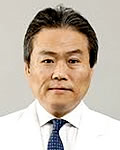
Representative DirectorYasuhiro Otomo, M.D., Ph.D.
Japanese Association for Disaster Medicine (JADM) is an academic society with 4,500 members, one of the specialist medical societies of Japanese Association of Medical Sciences. JADM was launched in May 1995 as a Japanese study group of disaster medicine and then became an academic society in February 2000.
Our association is focusing on domestic and international disaster medicine. Multidisciplinary researchers such as healthcare workers, firefighters, disaster prevention administrators, disaster prevention researchers gathered in order to solve problems related to disasters comprehensively. The role of JADM in the academic consortium on emergency medical service and disaster medical response plan during the Tokyo Olympic and Paralympic games in 2020 is to establish a structure for managing mass casualties (pre-hospital / hospital) by terrorism etc. and to standardize the medical record in the first aid station as Mass Gathering Medicine, and to develop the reporting system for patient information (setting up the J-SPEED or Emergency Medical Team Minimum Data Set Tokyo Olympic-Paralympic version following the WHO standard). We would like to contribute not only to the Tokyo Olympic and Paralympic games but also to the improvement of the whole Mass Gathering Medicine in collaboration with other academic societies. Thank you.
The Japanese Association for Disaster Medicine WEB Site
The Japanese Society for Clinical Toxicology
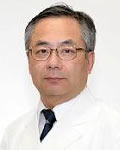
Representative DirectorShinichiro Suzaki, M.D.
The Japanese Society for Clinical Toxicology (JSCT), established in 1982, has about 1,000 members and is the only professional society in Japan specialized in acute clinical intoxication. We research the epidemiology, pathophysiology, treatment, and prevention in all fields of acute poisoning caused by natural products, medications, agrichemicals, household and industrial products and chemicals.
As experts in the above field, we have been contributing to our society and look forward to enhance our partnership with the Japanese Association of Acute Medicine and related academic societies and organizations to support the forthcoming Tokyo Olympic Games and Paralympic Games in 2020.
With regard to the increased concerns on countermeasures against chemical disasters / terrorism, the Japan Poison Information Center (JPIC), which has been in a close relationship with our Society, will continue taking the initiative in preparing and implementing required countermeasures, reflecting its long years of experience.
(Title photographs, Amanita muscaria and Chrysaora pacifica, are reprinted by courtesy of JSCT. Copyrights reserved.)
The Japanese Society for Clinical Toxicology WEB Site
The Japanese Society for Burn Injuries
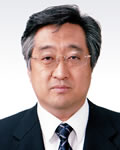
Representative DirectorDaizoh Saitoh, M.D.
The Japanese Society for Burn Injuries was stablished in 1975 and has taken the lead in burn treatment and research in Japan. The incidence of serious burn injuries is decreasing in Japan owing to increased awareness of fire hazards through educational campaign. However, severe burn injuries are likely to occur in the event of disasters or terrorist attacks. One-third of hospitalized cases had serious burns caused by the terrorist attacks on September 11, 2001 in the United States. We must prepare for possible terrorist attacks during the Tokyo Olympic Games and Paralympic Games in 2020, regardless of our wish not to happen. The role of the Japanese Society for Burn Injuries is to organize the appropriate triage and transportation of burn victims when mass casualties occur. We will work to prepare for this responsibility.
The Japanese Society for Burn Injuries WEB Site
The Japanese Society for Emergency Medicine
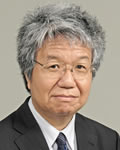
PresidentTetsuya Sakamoto, M.D., Ph.D.
The Japanese Society for Emergency Medicine is an academic organization comprised of various emergency healthcare professionals, such as physicians, nurses, emergency medical technicians, paramedics, pharmacists, radiology technicians, laboratory technicians and medical social workers.
Our society was established in 1998 and currently has 3,700 individual members, with many fire departments nationwide participating as organization members. In cooperation with all healthcare professionals, we discuss and promote activities such as pre-hospital emergency medical care, team medical care, emergency care certification by job category, development of educational training courses, and annual academic meetings.
In this consortium, our contribution, as multispecialty academic groups, will be the followings:
- We will evaluate emergency medical needs before and after the convention, and propose measures and countermeasures for dealing with emergencies.
- We will educate providers and emphasize system improvement to ensure smooth ambulance transportation though the needs increase.
- We will define and categorize problems that may occur when providing medical care to foreign visitors to Japan who will have different religions, languages, and social background, and will propose solutions to these problems.
The Japanese Society for Emergency Medicine WEB Site
Tokyo Medical Association
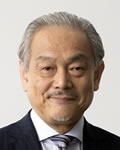
ChairmanHaruo Ozaki, M.D., Ph.D.
The Tokyo Medical Association has approximately 20,400 memmberships,which consist of physicians working in various settings,i.e. in clinics,hospitals,and universities. Until now, the Association have dispatched medical teams for large-scale disasters, such as the Great Hanshin-Awaji Earthquake, Chuetsu-oki Earthquake, the Great East Japan Earthquake, the Kumamoto Earthquake, and for the various sports events including the Tokyo Marathon. By using our knowledge obtained from medical care during past disaster and sports events, we are also planning to send a medical team to the Tokyo Olympic and Paralympic Games in 2020; and deal with the upcoming Games by cooperating with the Japan Medical Association and other organization, such as this Consortium. We believe that it would be critical to prepare for treating multiple-patients for trauma, for countermeasures against smorking that might cause various dieases and for countermeasures against heat stroke especialy during the summer time in Japan, and for medical care for a large amount of incoming tourists. Thus we have launched various committees, such as the Committee of Internal Affair,
Emergency Medicine, Tobacco Control, Medical Cares for Foreign Residents.
We will be preparing for a possible increase in demand for emergency medicine due to a temporarily increased population during the Tokyo Olympic and Paralympic Games in 2020 and also for maintaining the regular medical care in that district as well.
Tokyo Medical Association WEB Site
Japan Pediatric Society
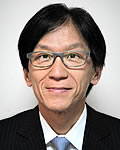
PresidentTakahashi Takao, M.D., Ph.D.
The Japan Pediatric Society with over 22,000 members has been working to develop and improve the overall pediatric care, as well as to protect and improve the health, human rights, welfare of children. We have made concrete proposals and countermeasures for disasters and emergency care through various committee activities.
At the Great East Japan Great Earthquake of 2011 and the Kumamoto earthquake of 2016, we dispatched doctors to support pediatric care for the affected area; after those support activities, we continue our effort to identify problems in the disaster system. We also regularly hold a pediatric emergency care forum which is open to public to raise the interest and understanding among citizen regarding general pediatric emergency care.
We hope to closely cooperate with the members of this consortium organization group for the Tokyo Olympic and Paralympic Games in 2020 and in so doing to contribute to better pediatric care systems for emergency terrorism and disaster preparedness.
Japan Pediatric Society WEB Site
The Japanese Society of Clinical Sports Medicine
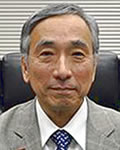
PresidentTakashi Kawahara, M.D.
The Japanese Society of Clinical Sports Medicine is a medical society (the Society), which was initially established in 1989. It was then sanctioned as a General Incorporated Association in 2014. The Society’s goal is to contribute to health and welfare of Japanese citizen by promoting research and exchanging information in sports medicine, and by disseminating the idea of sports medicine to public. The Society consists of approximately 4,350 members, who are physicians and co-medical staffs and who have various different backgrounds with profound knowledge of clinical sports medicine, such as internal medicine, orthopedic surgery, general surgery, obstetrics and gynecology, pediatrics, psychiatry, rehabilitation, emergency medicine, ophthalmology, dermatology, dental oral surgery, physiotherapists, athletic trainers, pharmacists, nurses, and so on. In Tokyo 2020, we will be in charge of treating athletes mainly in the competition venues. Thank you.
Japanese Society of Clicnical Sports Medicine WEB Site
The General Incorporated Foundation, the AED Foundation of Japan
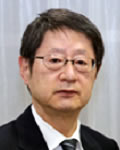
PresidentHideo Mitamura
The AED Foundation of Japan has been working on developing schemes and systems with utilizing AED in order to rescue people's lives from death caused by sudden cardiac arrest.
We have so far had 11 citizen runners who suffered from sudden cardiac arrest and were successfully resuscitated with on-site CPR and AED through the several years of the Tokyo Marathons. These successes attribute to thorough preparations in advance to the Marathons, working by staffs on the marathon course, and rapid AED transport by bikes. We will further develop and apply these experiences to establish an effective placement of AED in various sports scenes, to communicate publicly regarding easy-to-understand AED guidance signs and placement information, and a system that enables quick initiation of rescue attempt anytime and anywhere when sudden cardiac arrest is witnessed or reported.
As a member of this consortium, the AED Foundation of Japan proudly announces to keep our effort so that we will maintain zero sudden cardiac death at sports scenes.
The AED Foundation of Japan WEB Site
The Japanese Society of Resuscitation
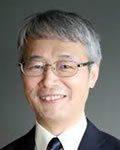
PresidentKaneyuki Kawamae, MD, Ph.D
The Japanese Society of Resuscitation was established by seniors of the Japanese Society of Anesthesiologists, and has been engaged in research and education regarding resuscitation. This year marks the 37th year. Until now, Dr. Kazuo Okada, one of the founding members of the Society, established the Japan Resuscitation Council, and was internationally devoted to creating databases and disseminating evidence. In addition, the council has been gathering various academic associations and contributing to development and education of guidelines for resuscitation in Japan. We have mainly adopted surgical anesthesia management to protect patients from surgical invasion. In addition, we contribute to intensive care, emergency care, pain clinic and palliative care by making our knowledge and skills fully available. Resuscitation is indispensable in each area, and the Society has been dedicating to development of resuscitation.
As one of group members of this Academic Consortium, we would like to contribute to the Games by constructing a network that can cope with disasters and accidents even if they occur frequently.
The Japanese Society of Resuscitation WEB Site
The Japanese Association for Infectious Diseases
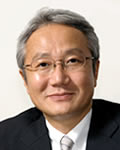
PresidentKazuhiro Tateda
The Japanese Association for Infectious Diseases was founded in 1926. As of the end of 2017, the number of members exceeded 11,000, and since the establishment we have consistently promoted clinical and research activities on infectious diseases which have been problematic at that time. In the 2020 Tokyo Olympic and Paralympic Games, as many travelers and stakeholders are expected to enter and leave the country, it is necessary to respond while paying special attention to bringing in and taking out infectious diseases that are problematic in the world. Especially the problem of resistant bacteria, imported infectious diseases, bioterrorism are important issues. Through collaboration and cooperation with this consortium, we would like to fulfill our responsibilities from the perspective of crisis management against infectious diseases through the creation of the 2020 Tokyo Olympic and Paralympic-Infectious Disease Control Manual. Thank you for your understanding and cooperation.
The Japanese Association for Infectious Diseases WEB Site
Japan Surgical Society
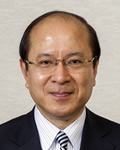
PresidentMasaki Mori, M.D., Ph.D., FACS
Japan Surgical Society was founded in 1899 and currently about 40,000 members enrolled in it, which has been carried out various projects. In addition, the Society started training physicians for trauma treatments as a designated organization of "Trauma Surgeons Training Project" by the Ministry of Health, Labor and Welfare. We believe that we should improve qualifications and skills among surgeons involved in medical care for patients with bomb injury, gunshot wound, cut wound, or incision would as a part of an emergency medical system during the Tokyo Olympic and Paralympic Games 2020. However, medical cares for those injuries are not well-known nationwide, and we would have to prepare medical systems in case of terrorists attacks. Therefore, we are offering lectures and off-the-job trainings for certified surgeons and nurses who are working in emergency and critical care centers. The list of those who completed the training is shared with the Ministry of Health, Labor and Welfare, and it can be accessed on our website as well. Thus, we look forward to cooperating and working with the Consortium through our activity.
Japan Surgical Society WEB Site
The Japan Society for Infection Prevention and Control
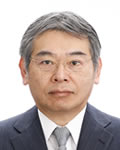
PresidentMasaki Yoshida, M.D., Ph.D.
The Japan Society for Infection Prevention and Control is the world's largest academic society in the field of infection prevention and control. As a specialized society on infection prevention and control, prevention of infectious diseases, and crisis management, the Society contributes to making an advance in academic research and national public health. Now, infectious diseases have a potential to spread globally. Thus, we are all aware that the risk of infectious diseases could be increasing during the Tokyo Olympic and Paralympic Games in the summer of 2020. Therefore, in particular, the role of the Society in the consortium is to respond promptly and accurately as an expert in infection control and infectious disease crisis management if an outbreak of various infectious diseases including bioterrorism occurred. The Society would like to cooperate with all other society and associations at the Consortium in order to contribute further to building a safe and secure system.
The Japan Society for Infection Prevention and Control WEB Site
The Japanese Orthopedic Association
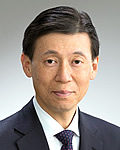
PresidentMorio Matsumoto, M.D., Ph.D.
The Japanese Orthopaedic Association was founded in 1926 and became a public-interest incorporated association in 2011. It is currently one of the largest professional societies related to musculoskeletal medicine in the world.
Orthopedic surgeons deal with a variety of diseases, including age-related diseases of the spine and limb joints, injuries, congenital diseases, bone and soft tissue tumors, metabolic diseases such as osteoporosis, and inflammatory diseases such as rheumatoid arthritis, and infections. In addition, in 2007, the Japanese Orthopaedic Association proposed the concept of locomotive syndrome, which is a condition of reduced mobility caused by impairment of locomotive organs, and has engaged in activities that contribute to extension of the life expectancy in good health of people through the prevention and treatment of this condition. Sports medicine is also an important field, and many members of the Japanese Orthopaedic Association are in charge of prevention and treatment of injuries and disorders in athletes and of their medical check-ups. In cooperation with organizations that participate in the consortium, our association, as a professional society specializing in musculoskeletal medicine/health care, would like to contribute to the 2020 Tokyo Olympics and Paralympics
The Japanese Orthopedic Association WEB Site
Japan Society for Prehospital Medicine
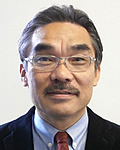
PresidentTakashi Nakagawa, M.D., Ph.D.
Japanese Society for Prehospital Medicine is an academic organization to develop and improve the medical care system where emergency physicians and nurses are dispatched to the scene in appropriate manner to provide early medical interventions in prehospital setting.
In 1992 the emergency life-saving technicians started to give medical cares to the patients in critical condition in the field, however cares they provide are limited. For further improvement to prehospital care, the aeromedical service system (so-called "Dr.Helicopter") was introduced with public financial support in 2001. The present main goal of our society is to establish a well-functioned ground transportation system for severely injured patients.
The occurrence of terrorism and mass-casualty accident are serious concerns during the Tokyo Olympic and Paralympic Games.
As a member of this academic consortium, we would like to contribute to plan, prepare and provide our specialized knowledge and experience.
Japan Society for Prehospital Medicine WEB Site
The Japan Society of NEUROTRAUMATOLOGY
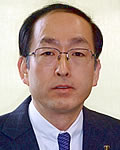
PresidentHiroyuki Nakase, M.D., Ph.D.
The Japan Society of NEUROTRAUMATOLOGY was established in 1977, and made a new start as general incorporated association in 2010. In the tragic era called the “traffic war” in the 1960s – 70s, many neurosurgeons struggled with the treatment of severe traumatic brain injuries night and day. However, disease conditions and therapeutic strategies for severe traumatic brain injury have changed in recent years due to decreases in the number of traffic injuries and the increasing number of incidents of fall/rolling down among the elderly. In addition, the topics which our society should address have also been changing, including social welfare problems, such as fatal accidents due to head injuries incurred during sports activities and posttraumatic neuropsychological impairment, and the importance of neurocritical care. In this consortium, our society focuses on educational activities related to the prevention and treatment of concussion and other sport-related head injuries. In addition, the potential for acts of terrorism to occur during the Tokyo Olympics is a concern; however, gunshot wounds and blast injuries to the head have been rare in Japan. Therefore, it will be necessary to establish a system for such situations, including education for medical staff.
The Japan Society of NEUROTRAUMATOLOGY WEB Site
The Japan Academy of Critical Care Nursing
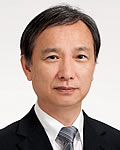
Representative DirectorHiroaki Yamase, R.N., M.S., Ph.D.
The Japan Academy of Critical Care Nursing was established to contribute to the development of critical care nursing as a science. The Academy contributes to various facets of critical care nursing, including clinical nursing practice, nursing study, health care policy to enhance nursing expertise, and the development of a broad range of skills and knowledge.
In this consortium, we support nurses in their many various roles as providers, including first aid, emergency nursing, and intensive care during the Tokyo 2020 Olympic and the Paralympic Games. For example, the Academy recognizes that well-trained and experienced emergency and ICU nurses are needed in unexpected and traumatic events such as terrorist attacks. In particular, they need to be versed in verbal and nonverbal communication skills, particularly if patients do not speak Japanese.
The Academy believes that critical care nurses play a vital role in Japan's health care system, and our goal is to optimize their competencies through evidence-based data.
The Japan Academy of Critical Care Nursing WEB Site
Japanese Society of Anesthesiologists
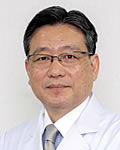
PresidentToshiya Koitabashi, M.D., Ph.D.
The Japanese Society of Anesthesiologists was established with the objective of safeguarding patients’ lives and providing them with safe and comfortable medical care, with a primary focus on maintaining patients’ vital signs before, during, and after operations. Relevant disciplines include not only vital care during emergency and critical care medicine, but also pain and palliative care originating from a variety of diseases and surgeries. Incorporated as a public interest foundation in 2007, the Society has over 13,000 members as of October 2017, including more than 8,000 specialist and consulting physicians. In addition to perioperative care, primarily in the context of surgical anesthesia, anesthesiologists are active participants in emergency medicine and intensive care for patients ranging from newborns to the elderly, working to monitor those in critical condition, to alleviate their pain, and to guarantee their safety. Through a consortium for the 2020 Tokyo Olympics and Paralympics, it is my hope that the Society can establish a tight collaborative network between medical facilities in the Kanto region surrounding Tokyo, and working jointly with other societies, to help these facilities with surgical accommodations for critical patients, and to receive those in need of emergency and intensive care.
Japanese Society of Anesthesiologists WEB Site
The Japanese Society of Psychiatry and Neurology
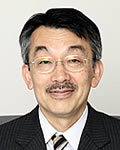
PresidentShigenobu Kanba, M.D., Ph.D.
Our Society, having promoted the development and advancement of psychiatry and medicine as well as the protection and betterment of health, human rights and welfare for people in Japan, celebrates its 116th anniversary with approximately 19,000 members. Our ultimate goal is to establish the best psychiatric practice here in Japan that the patients and their families can count on.
Pertaining to disaster psychiatry, we, mainly through the efforts of the disaster relief committee, have supported psychiatric care in the disaster-stricken areas by continuously attempted to identify the problems in those areas and discuss the solutions, hosting “Disaster Forums” there, and making proposals.
At such large-scaled international events as Olympics and Paralympics, various mental health-related issues can arise, including mental health problems of guests from abroad, including the athletes and the audience, or mental health problems in association with disasters or terrorism.
We aim to deepen our understanding of those issues by joining the consortium and closely collaborate with the member organizations and with other organizations relevant to neuropsychiatry, thereby contributing to the Tokyo Olympics and Paralympics to be held in 2020.
The Japanese Society of Psychiatry and Neurology WEB Site
The Japan Prehospital Trauma Evaluation and Care Council
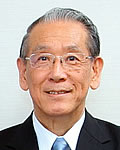
PresidentKunihiro Mashiko, M.D., Ph.D.
Japan Prehospital Trauma Evaluation and Care(JPTEC) Council promotes educational program of the JPTEC aims to reduce Preventable Trauma Death (PTD).JPTEC program is an activity guideline incorporates knowledge and skills that all staff involved in prehospital care relief in Japan should acquire.Our role in the Consortium is to help rescue staff and volunteers who respond to injuries that may occur inside and outside the Olympic and Paralympic stadium.We create a trauma training program to provide appropriate initial responses, and dispatch instructors in charge of the training. Thank you.
The Japan Prehospital Trauma Evaluation and Care Council WEB Site
Japan Society of Plastic and Reconstructive Surgery
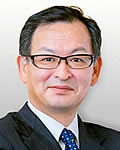
Chairman of Board DirectorsKensuke Kiyokawa, M.D., Ph.D.
The Japan Society of Plastic and Reconstructive Surgery was established in 1957, with about 5,000 members at present. Plastic and Reconstructive Surgery is a specialized field, in which we aim for improving patients’ quality of life by fixing physical defects and deformation as it should be in its form and function as well as making it more ideal state cosmetically. Treatment focuses on conditions such as external wounds, birth defects and reconstruction after malignant tumor resection. It also covers facial fractures, including fracture of nasal bone, cheek bone, upper and lower jaw. That means we often treat those who were injured or wounded during sports activities. Ahead of the Tokyo Olympic and Paralympic Games in 2020, we are ready to help not only athletes and players but also spectators and supporters with providing appropriate treatment for their injuries and wounds.
Japan Society of Plastic and Reconstructive Surgery WEB Site
Japan EMT School Association (JESA)
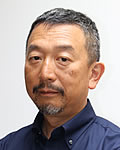
Board RepresentativeHideharu Tanaka, M.D., Ph.D.
JESA is a co-operated organization of private paramedic institute in Japan which was established in 1996. The reason is that the private paramedic education has been required to improve the quality of education contents. As Our educational challenge is consistently produces excellent paramedic who has advanced medical knowledge, skills, and ethics.
The members are 16 full 4-year University programs and 23 College programs (2 to 3 year) at 2020 Feb. JESA produces about 1500 new paramedics annually.
We will consistently produce Paramedic who will work for public agencies such as fire, police, coast guard, and self-defenses force. And those paramedics will adjust to the expansion of the working field and scoop of practice according to social needs.
JESA is also participating in the Academic Consortium on Emergency Medical Service and Disaster Medical Response Plan during Tokyo Olympic and Paralympic Games in 2020. The consortium supports CPR or first-aid training for those volunteers and medical staff. JESA will also support the Tokyo Olympic and Paralympic Games in 2020 by dispatching instructors and students to secure safety.
Japan EMT School Association WEB Site
The Japan Resuscitation Council (JRC)
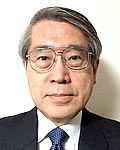
Board RepresentativeHiroshi Nonogi, M.D., Ph.D.
The Japan Resuscitation Council (JRC) was founded on January 18, 2002, which consists of more than twenty prestigious academic societies and organizations working in the area of emergency resuscitation in Japan including the Japanese Society of Intensive Care Medicine, Japanese Society of Anesthesiologists, Japanese Association for Acute Medicine, Japanese Circulation Society, and Japan Society of Perinatal and Neonatal Medicine.
The JRC is an interdisciplinary academic society of high public interest for the improvement of clinical and scientific affairs on cardiopulmonary and cerebral resuscitation.
The purpose of the JRC is to promote progress and the development of emergency resuscitation science by conducting research, exchanging knowledge, and collaborating with related groups inside and outside Japan on the science and practical applications of emergency resuscitation science. JRC is creating JRC Resuscitation Guidelines 2020 together with the International Liaison Committee on Resuscitation (ILCOR) and the Resuscitation Council of Asia (RCA) and others.
The enthusiastic activity, leadership, and passion of Dr. Kazuo Okada, the founding president and now the emeritus president of the JRC, was taken over by the current board of directors of the JRC lead by President Dr. Hiroshi Nonogi and Vice-President Dr. Tetsuya Sakamoto.
In the CONSORTIUM, JRC would make an academic proposal on the measures to expected cardiopulmonary and cerebral resuscitation, heart attack, stroke, and consciousness disturbance based on the JRC Resuscitation Guidelines, and so on.
The Japan Resuscitation Council WEB Site
The Japanese Circulation Society
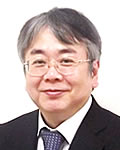
PresidentKenichi Hirata, M.D., Ph.D.
The Japanese Circulation Society (JCS) is one of the leading medical societies in Japan, with more than 26,000 members. The JCS is responsible not only for research and treatment of cardiovascular diseases, but also for playing a number of social roles, including development of medical systems, dissemination of clinical guidelines, and human resource development across multiple professions. For the upcoming 2020 Tokyo Olympic Games and Paralympic Games, we will build a system to provide appropriate medical treatment for cardiovascular diseases that occur during the Games within the emergency disaster medical system. Particularly in the case of emergency cardiovascular diseases such as acute myocardial infarction and acute aortic dissection, a rapid medical treatment system is the key to saving lives. We will respond to the increase in demand for cardiovascular emergencies during the event period, and also to maintain the regular medical system, in collaboration with other member organizations, utilizing maximally Tokyo CCU network, Acute Aortic Super-network, and the specialized cardiovascular treatment systems in other host regions.
The Japanese Circulation Society WEB Site
Joint Committee of the Disaster Emergency Medical System for the Tokyo Olympic and Paralympic Games in 2020
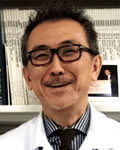
PresidentNaoto Morimura, M.D., Ph.D.
Our joint committee consists of members selected from each subcommittee of the societies, and will serve as a task force to accomplish consortium activities. We will accumulate knowledge and evidences from related specialty organizations, make recommendations, compile manuals, and present seminars. We will also create a forum for public comment not only for related organizations but also for widely divergent opinions and discussion of issues in order to formulate more effective proposals.
Considering the increase of patients associated with a temporary increase in the population of the host region, it is essentially important to provide routine emergency medical services, and also to predict the increase in demand for local and regional services, to educate and support medical staff, to prepare for peak demand for services, to respond to needs of foreigners in Japan, and to provide real-time medical informations. We will also evaluate monitoring methods and prepare guidelines and manuals. We will actively exchange information with other countries and the World Health Organization, and aim to provide the landmark project of mass-gathering medical care in Japan as well as transition to the next Olympic Games (Paris in 2024).

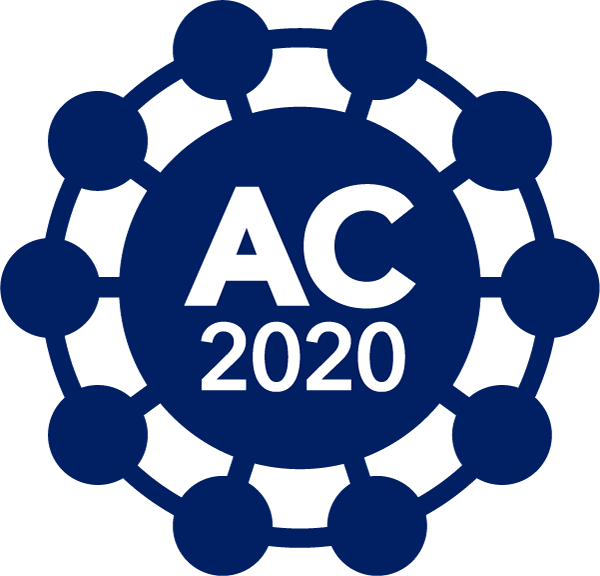 The Japanese Association for Acute Medicine
The Japanese Association for the Surgery of Trauma
The Japanese Society of Intensive Care Medicine
The Japanese Association for Disaster Medicine
The Japanese Society for Clinical Toxicology
The Japanese Society for Burn Injuries
The Japanese Society for Emergency Medicine
The Tokyo Medical Association
The Japanese Association for Emergency Nursing
Japan Pediatric
The Japanese Association for Acute Medicine
The Japanese Association for the Surgery of Trauma
The Japanese Society of Intensive Care Medicine
The Japanese Association for Disaster Medicine
The Japanese Society for Clinical Toxicology
The Japanese Society for Burn Injuries
The Japanese Society for Emergency Medicine
The Tokyo Medical Association
The Japanese Association for Emergency Nursing
Japan Pediatric 


